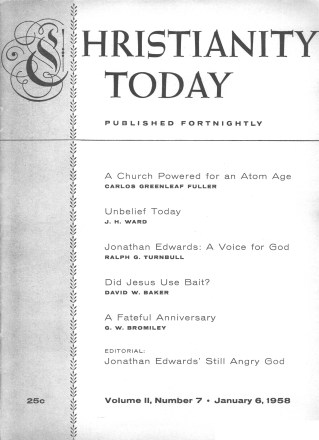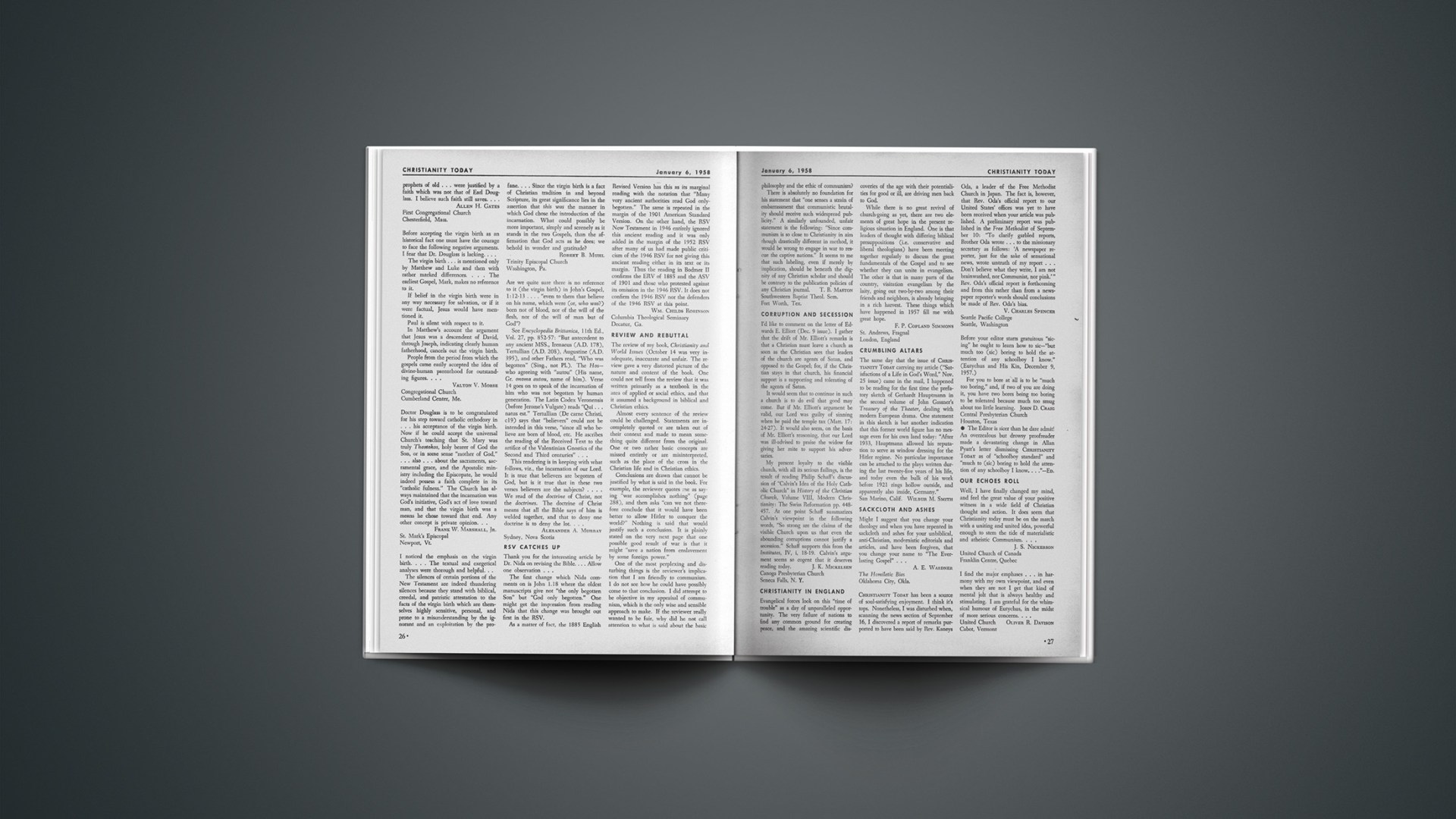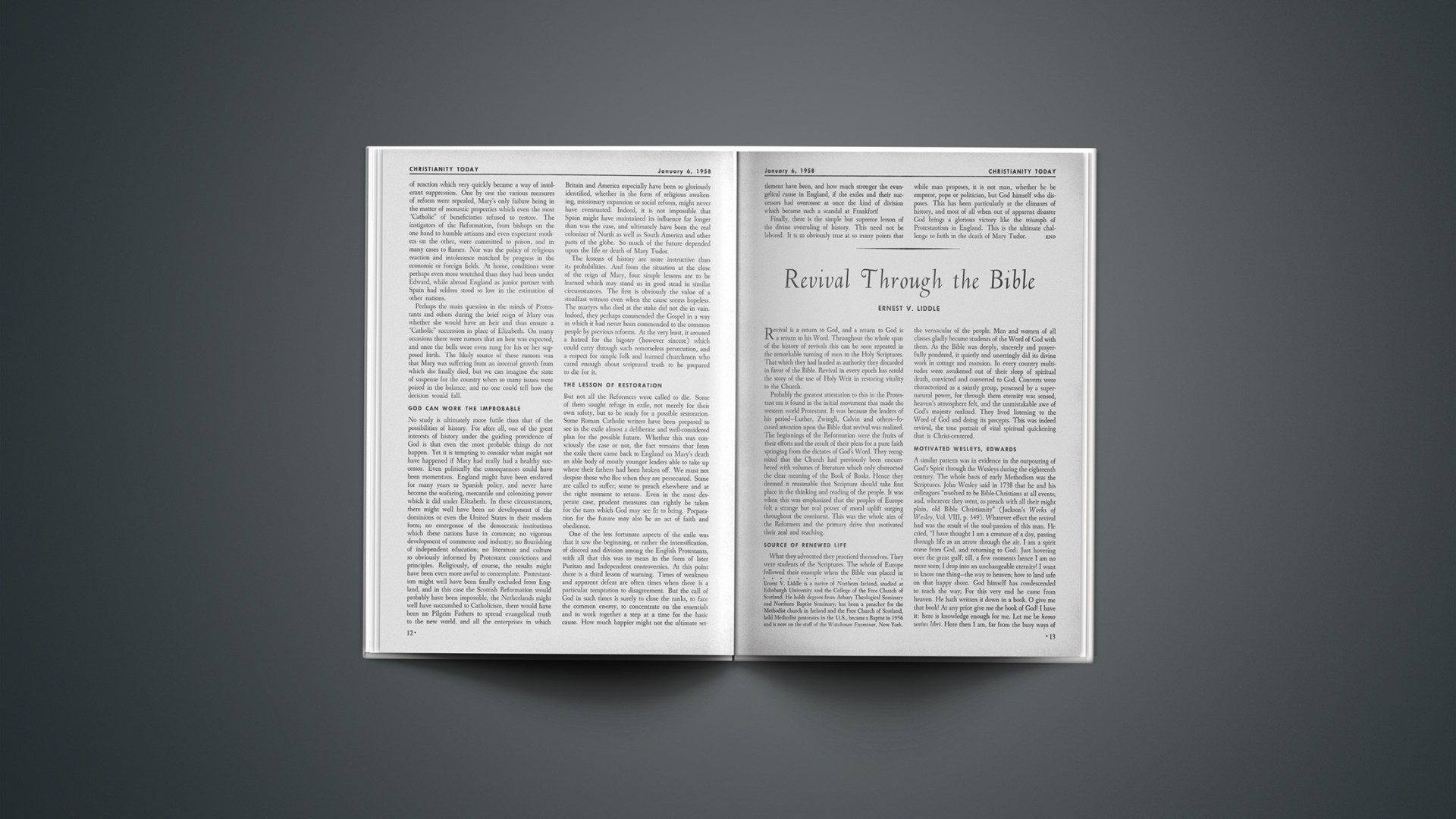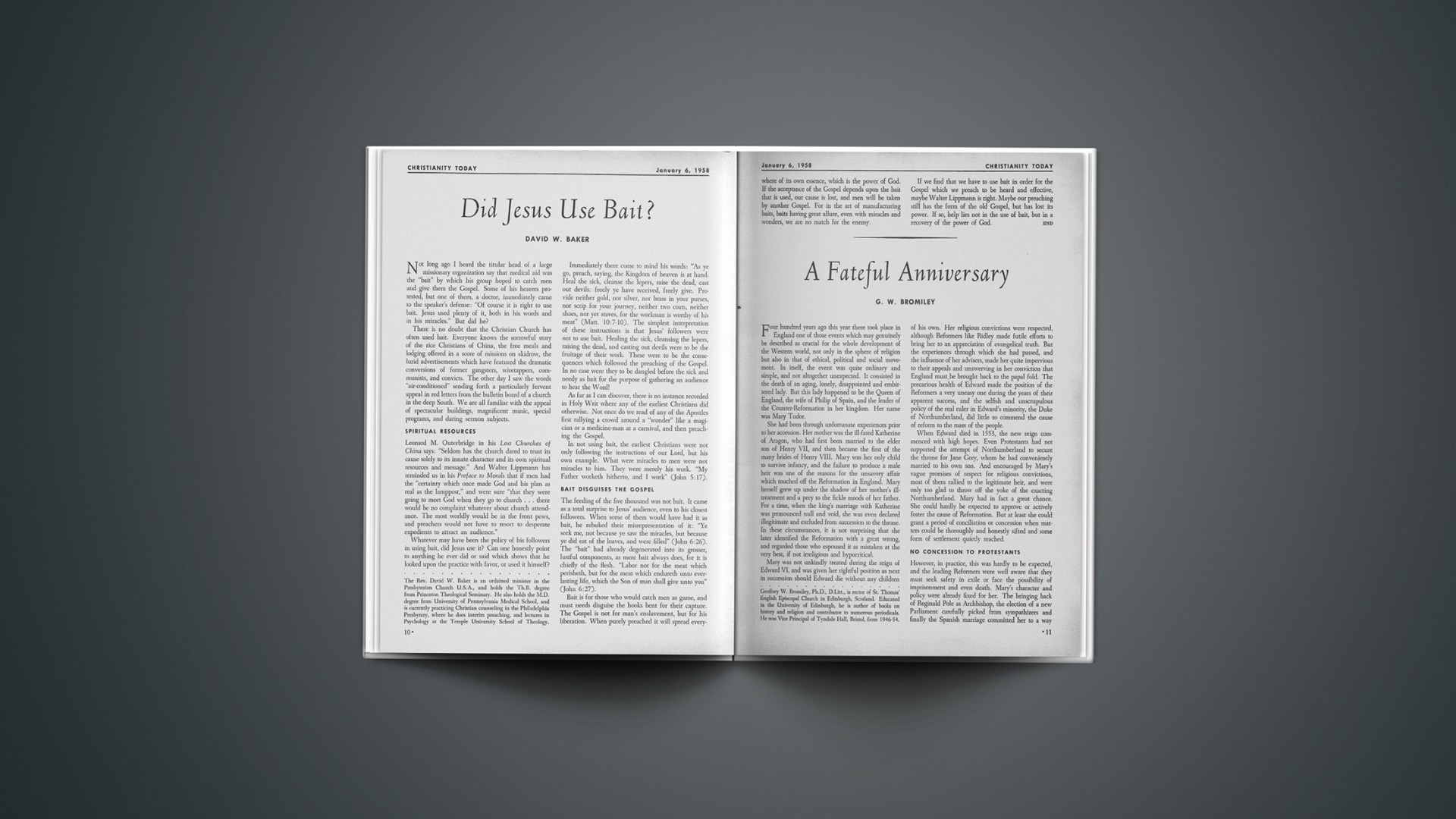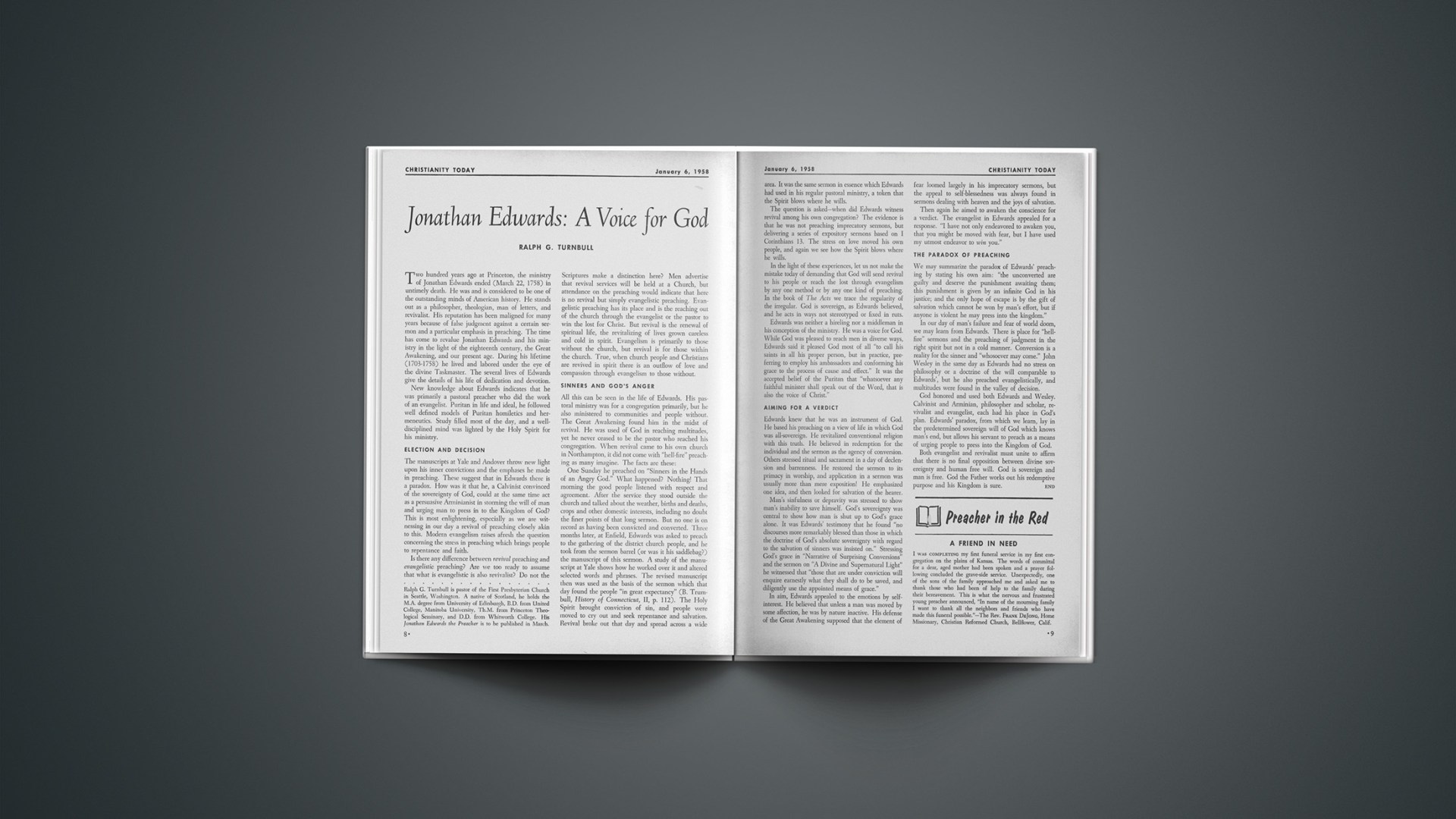But seek ye first the kingdom of God, and his righteousness; and all these things shall be added unto you (Matt. 6:33).
How gracious and comforting is this assurance of the blessed Jesus, that, in heartily seeking what is most estimable and durable, we go the way to find not only that Jewel, which is above all price, but to have added to it in abundance all the desirable jewels of lesser value. To seek the kingdom of heaven by faith in the merits of Christ, and, through the sanctifying gift of the grace of the Holy Spirit, in righteousness and true holiness, is the paramount duty, which every man owes to himself; and all other objects comparatively are utterly unworthy of his devoted attention, otherwise than subserviently to that end and aim.
Proper Seeking
It is only the wantonly presumptuous who, in mockery of God, would reap without sowing; and seeking first the perishable riches of earth, fondly imagines that the eternal good will be added to him over and above.
RUDOLF STIER
Seek it in faith, with prayers, with tears, with reformation. Seek it first; let no worldly thing stand in your thoughts worthy preferment to it. Seek it with disregard and a holy contempt of other things: for this once come, they will be added to you.
THOMAS ADAMS
Learn to covet spiritual things, labor for the meat that perisheth not. Lay hold upon eternal life, whatever you let go. Temporal things are mutable and momentary, mixed and infected with care in getting, fear in keeping, grief in losing. Besides, they are insufficient and unsatisfactory, and many times prove instruments of vice, and hinderances from heaven. Spiritual things, on the other side, are solid and substantial, serving to a life that is supernatural, and supernal. They are also certain and durable. They are sound and sincere, a continual feast, without cessation or the least intermission.
JOHN TRAPP
This supreme seeking, described as hunger and thirst in Matthew 5:6, is the distinctive mark of all true disciples. We may translate the present imperative: “go on seeking.” The desire for the Kingdom and righteousness is constantly satisfied, for what we seek is ours by grace; and yet the seeking is always to continue, for the object of our desire can ever be more fully attained. This seeking is, of course, in no sense synergistic, but the desire of the regenerate and believing heart to enter ever more fully into union with God. Grace kindles the desire and keeps it ever active in this life.… To seek his Kingdom is to desire more and more participation in the rule of the Father’s grace in Christ, enjoying more and more the blessings (Matt. 5:3–12) of that rule of grace which eventually becomes a rule of glory.
R. C. H. LENSKI
Kingdom And Righteousness
The Kingdom of God is the new spiritual economy. To seek it, is to make attainment for ourselves and others, of the holy spiritual happiness which it secures to all its genuine subjects, our great object, to lay up treasures for ourselves in heaven. The righteousness of God is obviously neither the justice of the divine character, nor the divine method of justification, but the righteousness of the kingdom required by God; that righteousness which far exceeds the righteousness of the scribes and Pharisees. To seek first the kingdom of God and his righteousness, is to make the attainment of that holy happiness for ourselves and others, which is to be perfected in heaven and the cultivation of that spiritual religion and morality, which is indissolubly connected with this holy happiness, our great, our principal business, to which everything else is to be subordinated, to which everything else is to be sacrificed.
JOHN BROWN
His righteousness—This means that personal righteousness which our Father requires in the subjects of the Messianic reign, which they ought to hunger and thirst after (Matt. 5:6); which ought to exceed that of the Scribes and Pharisees (Matt. 5:20); extending not merely to outward acts, but to the inner life of purpose and desire (Matt. 5:21–48); which ought to be practiced, not with a view to the praise of men, but to the approval and rewards of the Father in heaven (Matt. 6:1–18).
J. A. BROADUS
This righteousness by the evangelical condescension is far short of a sinless obedience; but is absolved by our sincere endeavors, though in many things we offend all. The evangelical righteousness consists in a hearty endeavor to obey the laws of the gospel; and in a diligent applying to God for grace to do it, and a quick and sincere repentance after lapses; and all this founded on a true faith in Christ, in and through whom it is that we are admitted to the benefits of the new covenant.
JAMES BLAIR
Cure For Anxiety
Having now prohibited, at great length and in various forms, the indulgence of a skeptical solicitude about even necessary things belonging to the present life, he shows them how it is to be avoided; not by mere negation, or attempting simply to abstain from such anxiety and unbelief, but by positively doing something else which will immediately correct the evil. This remedy for unbelieving doubts and cares consists in constantly subordinating all such personal consideration to the higher interests of the divine service, not as excluding all provision for this life, but as including and securing it.
J. A. ALEXANDER
All these things—an expression twice used in the verse preceding, and applied to the necessary things of this life, with particular reference to food and clothing, as the subject of the previous context. Added—given over and above the spiritual good directly flowing from devotion to God’s service. The whole prescription, therefore, is, instead of anxiously and passionately hunting, like the heathen, for the good things or even the necessaries of this life, as if God were not aware of their necessities or able to supply them, to aim first, in time and preference, at those things which concern his service, and believe that by so doing, what appears to be neglected will be certainly secured.
J. A. ALEXANDER
It is of no use only to tell men that they ought to trust, that the birds of the air might teach them to trust, that the flowers of the field might preach resignation and confidence to them. It is no use to attempt to scold them into trust, by telling them that distrust is heathenish. You must fill the heart with supreme and transcendent desire after the one supreme object; and then there will be no room and leisure left for the anxious care after the lesser. Have inwrought into your being, Christian man, the opposite of that heathen over-regard for earthly things.
A. MACLAREN
Here then, at last, we have reached Christ’s effectual cure for distrustful anxiety. If, Christians as we are, with a Father in heaven to ask for bread, any poor heart among us be still fretted with fears for the morrow and the evil it may bring; may not the secret of such heathenish disquietude be found in this, that we are not flinging ourselves with sufficient self-forgetfulness into the task given us by our Father? Perhaps we are like some Christians of whom Paul wrote, who sought their own, not the things which are Jesus Christ’s. It is when we are not pursuing as our first concern his kingdom and its righteousness, that we have room in our unfilled hearts for petty, earthly, and selfish cares. So long as we do not make God’s interests our supreme care, we cannot, or we dare not, cast on God the charge of our own private interests. If we would live free of thought about tomorrow, unburdened today by the evil which tomorrow, when it comes, will find sufficient for itself, and would learn the secret of a heart light as a bird’s in air, ought we not to practice a more entire devotion to the doing of God’s righteous will and the seeking of his spiritual kingdom?
J. OSWALD DYKES


